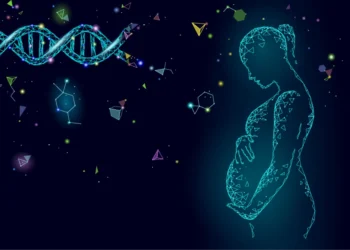Artificial Intelligence (AI) has garnered immense attention and revolutionized numerous aspects of our lives, from healthcare to transportation. However, as this powerful technology continues to evolve, ethical implications arise that demand careful consideration. In this article, we will analyze the ethical implications of AI technologies from a Christian worldview, emphasizing the importance of upholding human dignity and moral values.
Understanding Artificial Intelligence
Before delving into the topic, it is necessary to clarify what we mean by AI. Artificial Intelligence refers to the development of computer systems capable of performing tasks that would typically require human intelligence. These tasks may involve problem-solving, learning, and decision-making processes.
Christian View on Human Dignity
From a Christian perspective, human beings are created in the image of God (Imago Dei) and possess inherent dignity. This belief underscores the idea that every human life holds immense value and deserves respect and care. Upholding human dignity is often considered a core ethical principle in Christian teachings.
Ethical Implications of AI on Human Dignity
Artificial Intelligence, while offering immense potential benefits, raises several ethical concerns when it comes to human dignity. Here are some key areas of concern:
Privacy and Autonomy
AI applications often collect vast amounts of personal data, which can infringe upon an individual’s right to privacy. In a society that values autonomy, the potential misuse of personal data interferes with human dignity by diminishing personal freedom.
Algorithmic Bias
AI systems are trained on pre-existing data, which can harbor biases. Unchecked biases within AI algorithms can perpetuate discriminatory practices and pose a threat to human dignity by treating individuals unfairly based on race, gender, or other factors.
Responsibility and Accountability
As AI systems become increasingly autonomous, questions arise about who is accountable for their decisions and actions. The lack of transparency and understanding of AI decision-making processes can pose challenges in holding individuals or entities responsible for any harm caused.
Job Displacement
The rapid advancement of AI technology raises concerns about job displacement and the impact on human livelihoods. Displaced workers may experience a loss of dignity if they are unable to find alternative employment or are forced into low-skilled jobs.
Upholding Human Dignity in the Age of AI
Christian teachings provide a strong foundation for addressing these ethical implications and upholding human dignity in the face of evolving AI technologies. Here are a few considerations:
Ethical AI Development
Developers and policymakers should prioritize ethical considerations during the design and implementation of AI systems. This includes addressing biases, ensuring transparency, and respecting privacy rights.
Promoting Human-Centered AI
AI should be developed with the aim of enhancing human well-being rather than replacing or diminishing human value. Keeping human dignity at the forefront of AI development ensures that technology serves as a tool to advance society rather than devalue humanity.
Education and Empowerment
Society must prioritize educating individuals about AI and its implications. Equipping individuals with the knowledge and skills necessary to participate in the AI-driven world empowers them to adapt, make informed decisions, and maintain their human dignity.
AI Through The Christian Lens is Important
The rise of AI technologies has both positive and negative implications for human dignity. As Christians, it is crucial to critically analyze the ethical implications of AI through a lens of human dignity and moral values. By prioritizing ethical development, promoting human-centered AI, and empowering individuals, we can ensure that AI remains a force for good, upholding human dignity in all aspects of life.
















































































